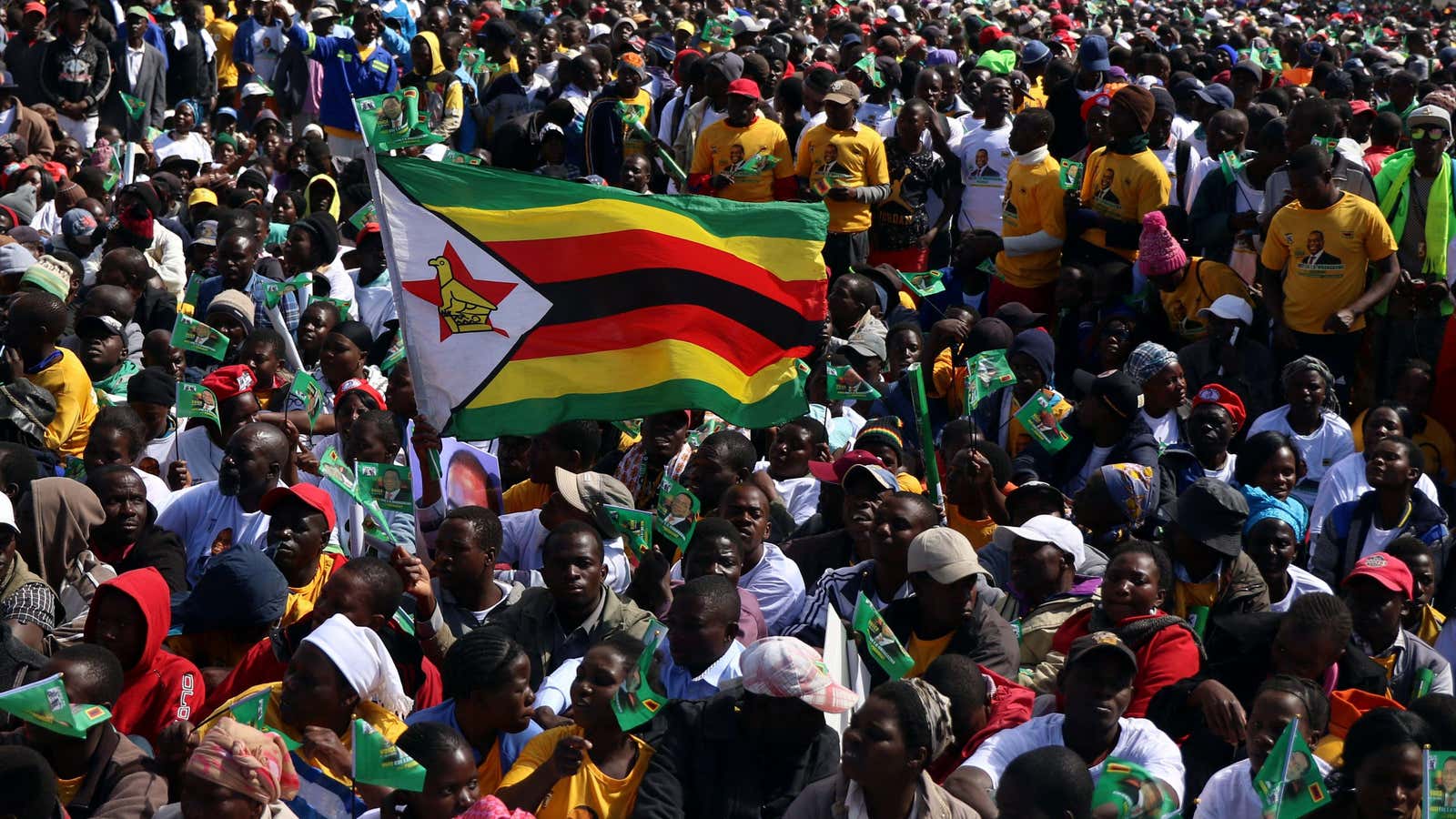Harare, Zimbabwe
Zimbabwe’s political parties are winding down their campaigns ahead of elections on Monday (Jul. 30) to pick the first new administration since the ousting of former president Robert Mugabe in November. But as well as battling each other in the run-up to a historic election, politicians and party officials have been fighting the spread of disinformation, so-called fake news, through social media.
Social media in Zimbabwe has been key through the election season but it has been overwhelmed by disinformation against all the major parties and significant candidates. Twitter, Facebook, and perhaps most importantly, WhatsApp, the leading platform here, have been used for mudslinging both officially and unofficially as the electoral race enters the home stretch.
The allegations and accusations from both sides have at times been so extreme voters might find have found it difficult to know the difference between disinformation from unknown sources versus the absurd claims from established politicians.
The main opposition, MDC Alliance, led by Nelson Chamisa, has alleged president Emmerson Mnangagwa and the ruling Zanu PF party, will manipulate the election results by using a “magical” ballot paper and ink which will turn Chamisa’s votes into votes for the current president. Meanwhile, a message has also been circulating on Twitter and WhatsApp, purportedly from one of Chamisa’s top advisors, advising voters should write CCC on the back of the ballot paper to ensure their votes do not shift to become Mnangagwa’s.
Charlton Hwende, a senior MDC Alliance advisor reaffirmed this was a hoax message.
“If voters scribble anything else outside of placing an X in the box of their preferred candidate, this would count as spoilt ballot papers and that is the motivation behind the disinformation and hoax messages,” said political analyst Moses Moyo.
Tensions are high in Zimbabwe as people prepare for the first election in the country’s 38-year history as independent country that will not feature Robert Mugabe. But there are also hopes that there will not be as much political disruption or violence as some of the last elections during the Mugabe years.
So far, fake news appears to be a bigger challenge for opposition candidate, Chamisa who claims Mnanagagwa’s team has hired people to do the dirty work of spreading fake news but has offered no evidence.
But it is not just the parties dealing with the impact of fake news, the beleaguered electoral commission has also had to work overtime to correct disinformation peddled through social media about the process and its own personnel. The latest has been a false story about the resignation of ZEC chairperson, Priscilla Chigumba.
Social media strategists in Zimbabwe say the current wave of fake news could force the government to wield a heavy hand in regulating over the top services after next week’s election. Zimbabwe has a Cyber Security Bill that could be passed into law in the next few months as a draft has already been published which will penalize the spread or possession of offensive content.
